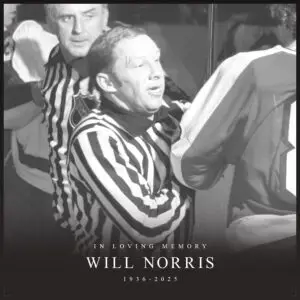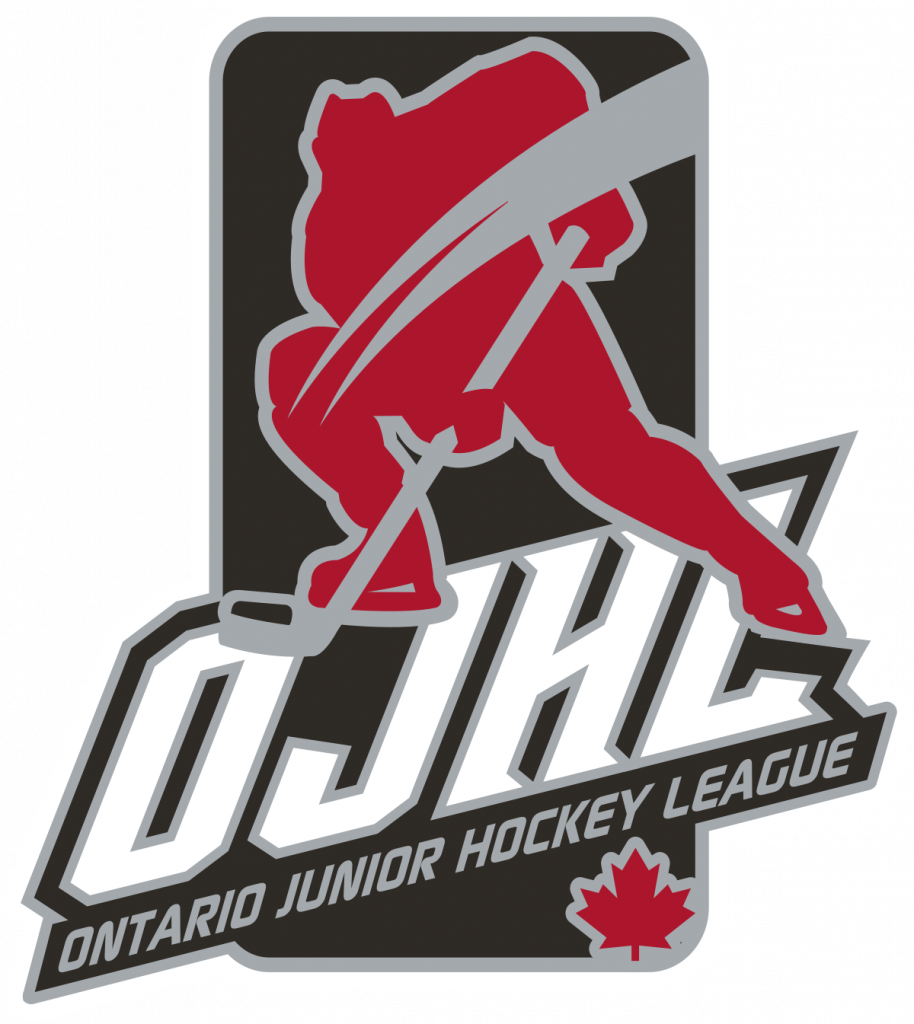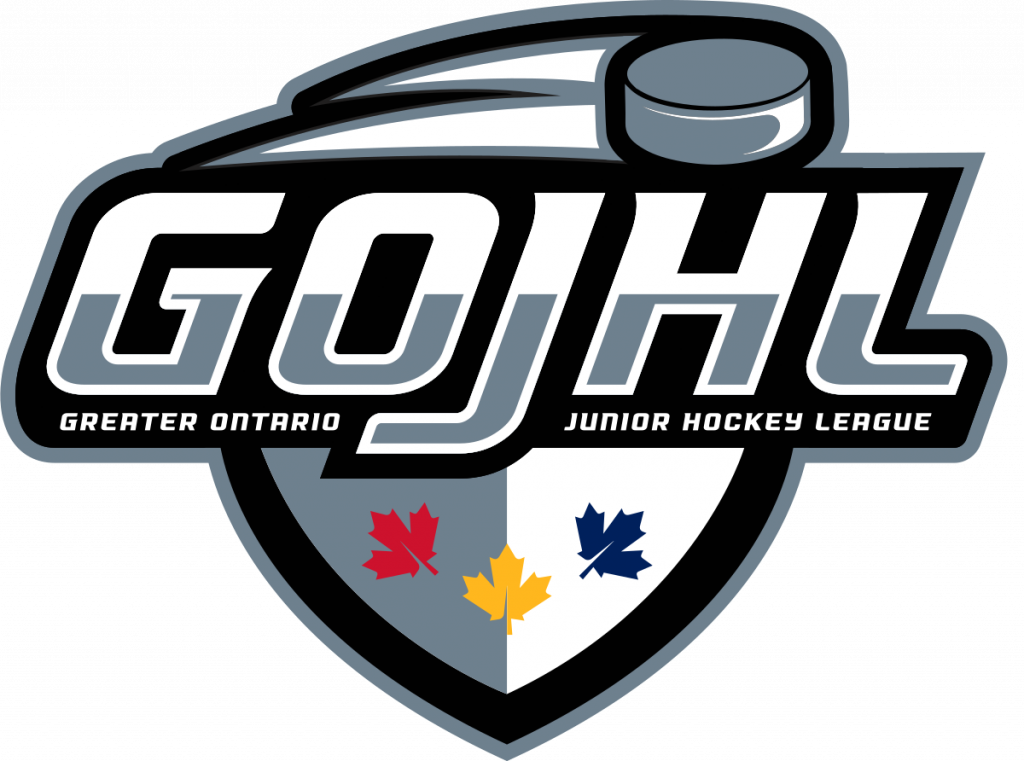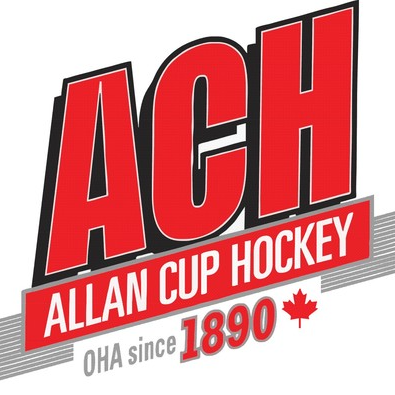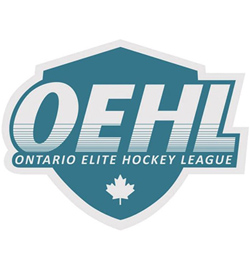by Chris McCleary

The 2023-2024 Sutherland Cup Champions Listowel Cyclones
Cambridge, ON – The war was finally over at 11 a.m. on Nov. 11, 1918 — the eleventh hour of the eleventh day of the eleventh month—the guns fell silent. It was the official end of one of the most destructive wars in history.
Up until the beginning of the bloody battle, a lot of people welcomed war. Before WWI, The idea of going off to war was romanticized. War was a rite of passage for young males. The generals and leaders of the time perceived the war as a chance to become a man, earn some money, gain some respect among their peers, and be admired by the young and old; everyone.
As the war raged on, it soon became clear that this was not going to be a war that would be sentimentalized. What society did not take into account was how far along technology had come since the last major global battle. Military technology has always shaped and defined how wars were fought. The First World War, however, saw a breadth and scale of technological innovation of unprecedented impact. Leading the technological charge during WWI, was the introduction of the machine gun.
As a result, thousands of Canadians lost their lives in the war. There were a lot of hockey players that perished in the great war. An estimated 30 hockey players had their lives cut short as a result of the war.
There was a need to remember and pay tribute to these individuals. Captain James T. Sutherland had an idea. Not only did Sutherland participate in WWI, he is known as the pioneer of hockey’s early years, helping to develop amateur hockey, and spread the game’s popularity throughout the country, and into the United States. He played in the inaugural season of the Ontario Hockey Association (OHA) and later became president of the OHA.
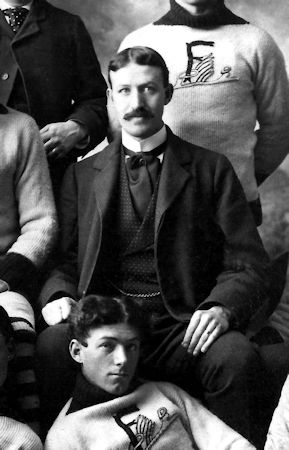
Shortly after the culmination of the war, Sutherland brought forward the idea to present a trophy to honour all the young Canadian hockey players who died in battle and have it awarded to the best junior hockey team in Canada. At the 1919 Ontario Hockey Association OHA’s annual meeting a motion was passed – ‘a memorial be established to members of the OHA who had fallen on the field of war.’
It started as an East-versus-West format. Then in 1934, Junior hockey was split off into ‘A’ and ‘B’ – the Memorial Cup became the champion for Jr. A.
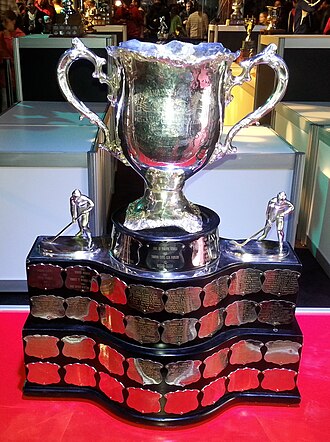
A lot of time had passed since the Memorial Cup was first dedicated in 1919. Since then, there have been several other deadly conflicts that Canadians have participated in. Including WW2, the Korean War, and the war in Afghanistan. Thus, in 2010 the Memorial Cup was ‘rededicated to the memory of all fallen Canadian Military Personnel.’
The Memorial Cup is not the only trophy that has an origin story tied to Sutherland. The Sutherland Cup was dedicated in his honour in 1934, and awarded to the Junior B champions of the OHA. To this day, the trophy is still awarded to the championship team in OHA Jr. B (GOJHL).
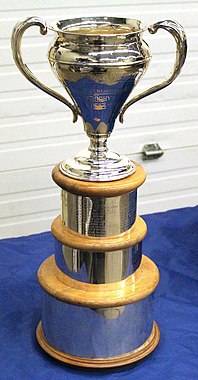
Remembrance Day stands as a day of reflection, gratitude, and respect for those who have served their nations. It is a day when everyone unites in remembrance. The sacrifices of veterans are honored, as well as reinforcing peace and unity. One of the great things about the Memorial Cup is that it’s a reminder of all this throughout the year; especially when it’s contested. It instills in us the need to never return to conflict on this level and how the sport of hockey has the power to unite us all.
About the Ontario Hockey Association
The Ontario Hockey Association (OHA) was founded on November 27, 1890, and is the governing body for the majority of Junior and Senior hockey in the Province of Ontario. The OHA is a Member Partner of the Ontario Hockey Federation which is one of thirteen Provincial and Regional Branches of Hockey Canada.
It is comprised of three Junior hockey leagues and two Senior hockey leagues: Junior A – Ontario Junior Hockey League; Junior B – Greater Ontario Junior Hockey League; Junior C – Provincial Junior Hockey League, Senior – Allan Cup Hockey (AAA) and Ontario Elite Hockey League (AA). For the 2024-25 season, these five leagues encompass 125 teams.
The objectives of the OHA are to foster and encourage the sport of amateur hockey, to conduct competition in the various categories established, to determine teams for entry into the inter-branch competitions that may be provided by Hockey Canada, and to provide for the affiliation of other hockey organizations.
The OHA provides administrative resources, coordinates programs, services and events for hockey participants and provides support to various Development Programs for coaches, officials, trainers and players, Safety and Risk Management Issues and offers resources for Harassment and Abuse education.
-30-
For more information or to set up an interview, please contact:
Chris McCleary
General Manager, Operations & Marketing
Ontario Hockey Association




